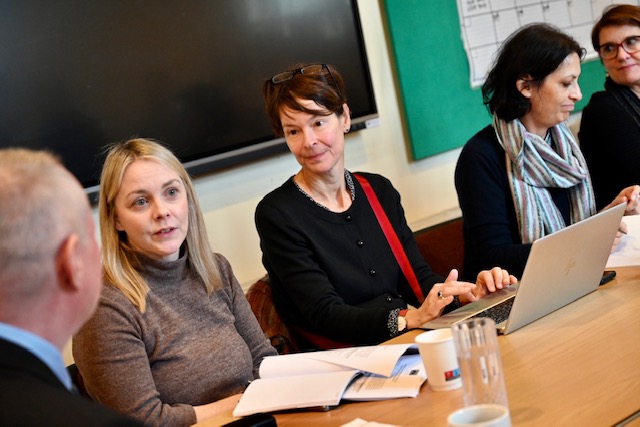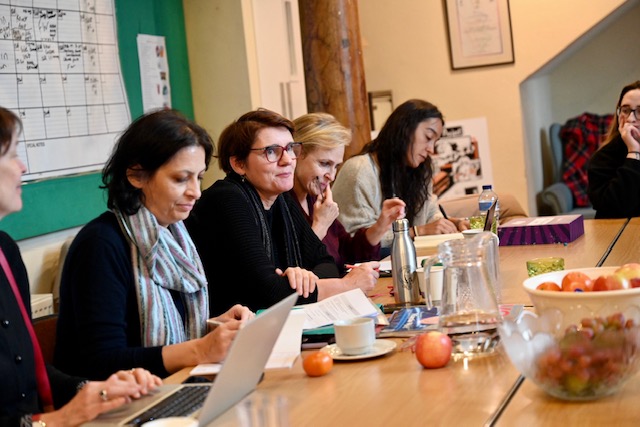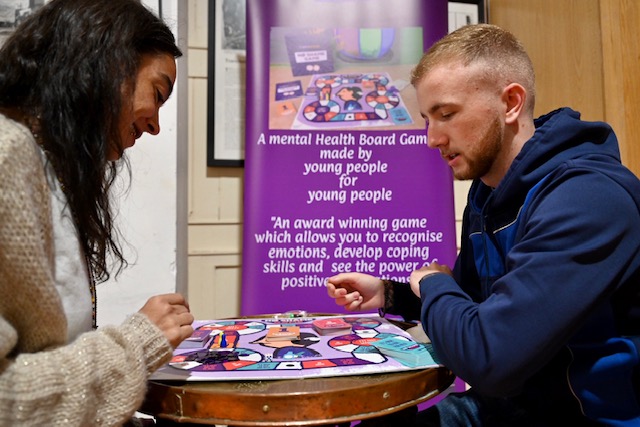Pavee Point Traveller and Roma Centre was delighted to host Michael O’Flaherty, Commissioner for Human Rights at the Council of Europe, during his visit to Dublin this week.
“The Commissioner has championed Travellers and Roma rights throughout his career, long before taking up his post at the Council of Europe. So, we are very pleased that one of his key priorities now as Commissioner is to further improve the rights of our communities,” said Martin Collins, Co-Director, Pavee Point Traveller and Roma Centre.
Mr O’Flaherty became Commissioner in January this year. He travelled to Dublin this week as part of the Council’s work to improve the human rights situation of Roma and Travellers, which is one of the priorities of his 6-year mandate, along with developing a Human Rights Action Plan.

During his visit to Pavee Point, the Commissioner met with Traveller organisations to discuss current concerns. He was particularly interested in hearing the experiences of Traveller and Roma women and young people. Issues raised at the meeting included the need for implementation and resourcing of existing policies, including the National Traveller and Roma Inclusion Strategy (NTRIS II) and the Traveller and Roma Education Strategy (TRES); the need for ethnic data and resourcing of independent and autonomous Traveller organisations and groups working with Roma.
In the afternoon he visited halting sites and Traveller accommodation schemes across Dublin to see the living conditions and meet people living there.

Earlier this year, in September, Martin Collins, Co-Director, Pavee Point, and Anastasia Crickley, Chairperson, Pavee Point, travelled to Strasbourg to attend a meeting held by the Commissioner which gathered experts from all over Europe working on Traveller and Roma human rights.
Speaking at the meeting in Strasbourg the Commissioner emphasised the need to work closely with Roma and Traveller communities to break down barriers and trigger positive change.
“With an estimated 10 to 12 million Roma and Travellers in Council of Europe member states, their situation is one of the greatest human rights issues of our continent,” said the Commissioner. “We must confront inequality, antigypsyism, and exclusion more resolutely. Since day one, I have committed to standing up for these communities. Now, I am focused on turning the insights gained during these discussions into tangible actions, contributing to making a real difference in the human rights situation of Roma and Travellers.”

The Commissioner’s visit to Dublin came shortly after the publication of the European Commission’s report on the implementation of the national Roma strategic framework for equality, inclusion and participation and the Council Recommendation on Roma equality, inclusion and participation. The strategic framework was adopted by EU Member States and enlargement countries in 2020 and the report shows how well Member States and enlargement countries are doing at meeting its aims.

